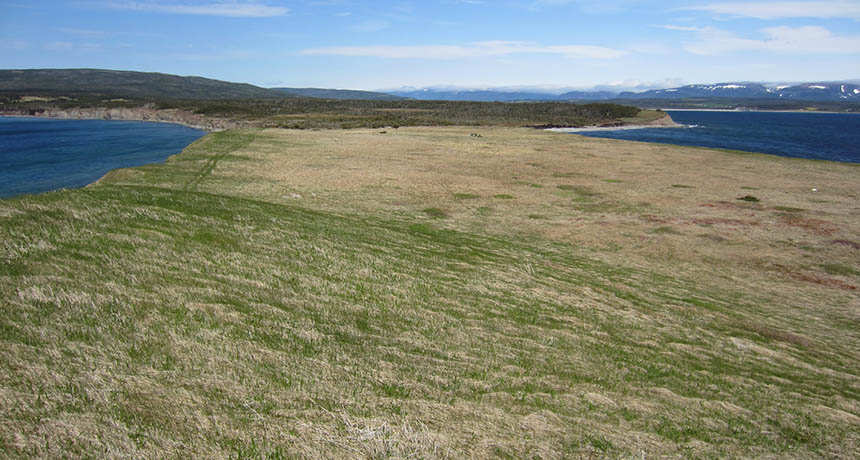Possible second Viking site found in Newfoundland

Excavations at a site called Point Rosee (shown) in Newfoundland have found hints of Norse presence about 1,000 years ago.
Greg Mumford; Courtesy of NOVA's "Vikings Unearthed"

Excavations at a site called Point Rosee (shown) in Newfoundland have found hints of Norse presence about 1,000 years ago.
Greg Mumford; Courtesy of NOVA's "Vikings Unearthed"